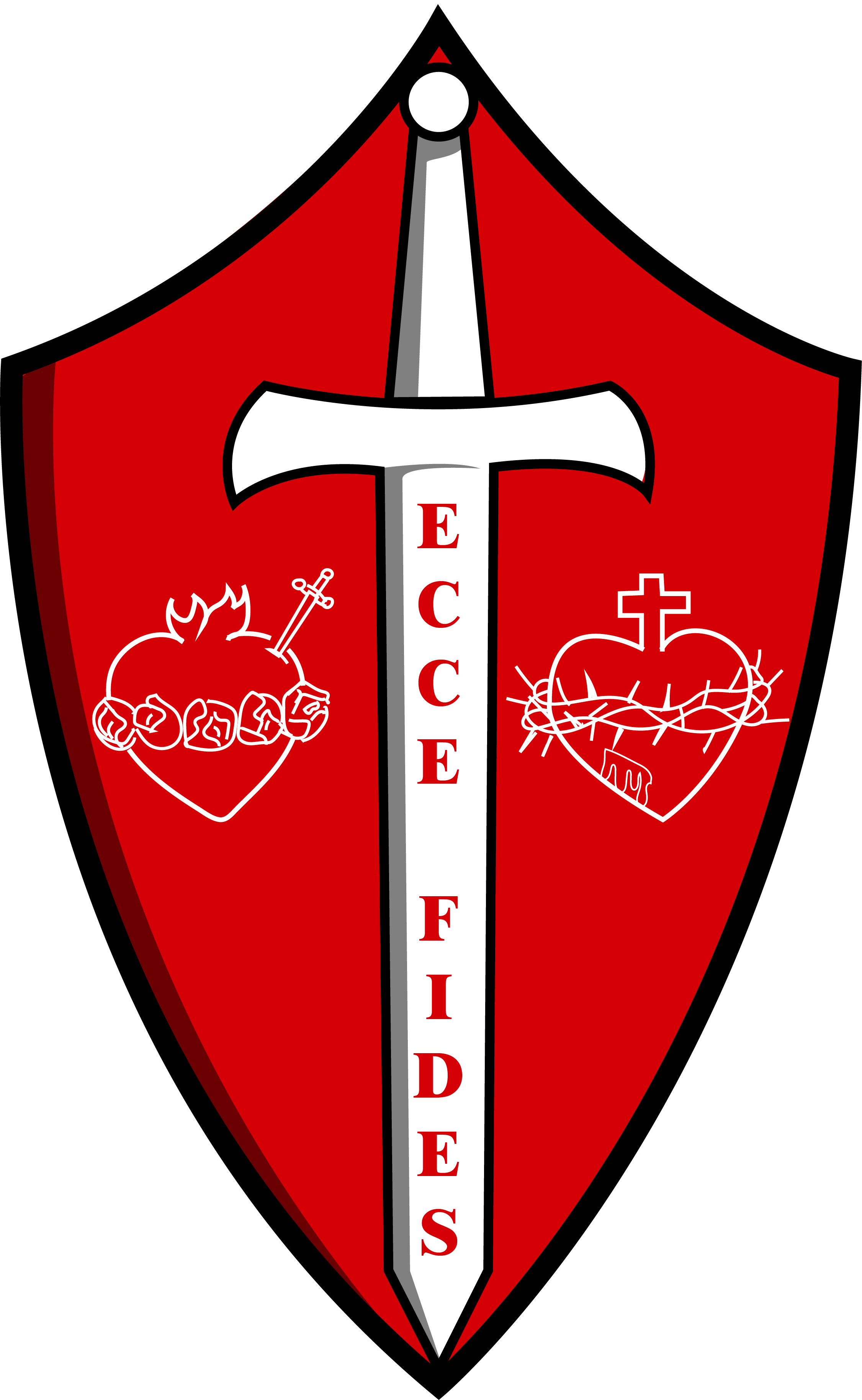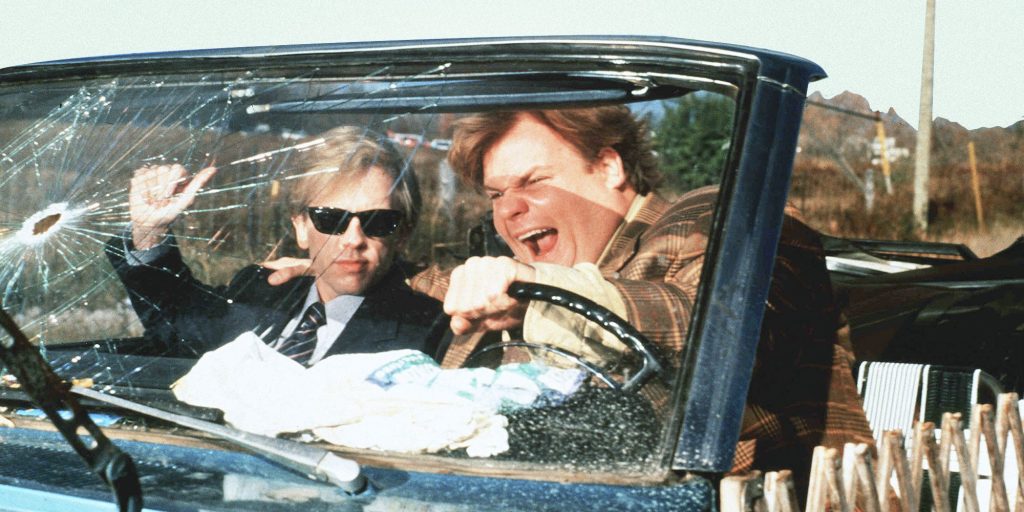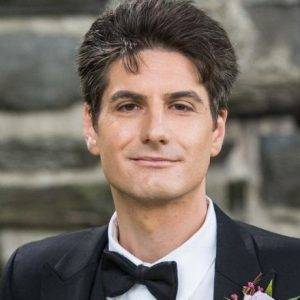When Tommy Boy was released in 1995, the slapstick comedy received mixed reviews from critics. A mild financial success at the box office, it exploded in the home video market and has become a cult classic. It stars Chris Farley as Tommy Callahan Jr., who inherits his father’s auto parts factory and struggles to save it from bankruptcy. Just two years after its release, the movie’s lead, Chris Farley, would be dead from drugs and alcohol at the age of 33.
Tommy Boy comes up often on the podcast Fly on the Wall with Dana Carvey and David Spade, in episodes with Rob Lowe and Lorne Michaels, among others. Lowe even commented SNL fans recognize him more for his bad guy role in Tommy Boy than in Wayne’s World. It remains actor Jonah Hill’s favorite film.
So how did a movie about selling brake pads cross-country become such a fan favorite? Nostalgia alone cannot explain it. Sentimentality? No. Rather, audiences recognized something more resonant that critics missed: the enduring sincerity and character of the film that still resonates. One that is arguably quite culturally Catholic.
While Tommy Boy is primarily a comedy, it incorporates Catholic elements that add depth and meaning to the story. Farley’s background and Catholicity are worth exploring since they significantly informed the narrative of Tommy Boy. However, Farley does more than play himself despite incorporating some semiautobiographical elements into the film, namely attending the Jesuit college Marquette University.
Farley grew up Irish Catholic around Madison, Wisconsin, where he attended parochial schools, including Edgewood High School of the Sacred Heart. While at Marquette, like Tommy, he played rugby. Although Farley also took ballet lessons and graduated with a double major in communications and theater. Like Tommy, Farley also worked with his father after graduating college. Instead of brake pads, Farley worked at the Scotch Oil Company in Madison and did improv at the Ark Improv Theatre there.
Farley eventually moved to Chicago and joined the famous Second City touring group, the first domino of many, ultimately leading to him joining the cast of SNL. According to Joel Murray, a fellow Second City cast member, Farley would “always make it to Mass,” typically for Saturday vigils since Sunday mornings proved challenging. In parallel, Tommy is shown wearing a cross necklace throughout the film. There are scenes where Tommy attends church and a funeral mass, highlighting the importance of religion and faith in his life. A bagpipes rendition of Amazing Grace plays during this sequence. This visual of Tommy crunching his flat cap in quiet contemplation corresponds with Farley’s deep Irish Catholic roots.
While at Second City, Farley’s Second City improv friends said he would always refuse payment for charitable shows organized by the theater, instead insisting his cut go back to the charity. As a devout Catholic, Farley’s churchgoing continued during his SNL days, and while living in New York City, he would visit nursing homes and volunteer at soup kitchens. Few knew of his volunteerism during his lifetime, including his immediate family. This sense of striving to do the right thing, to put the work in, is the backbone of Catholic social teaching.
Similarly, Tommy could easily embrace the potential buyout of his father’s company and live comfortably for the rest of his life. By choice, Tommy risks surrendering his share in the company to travel cross-country with his frenemy Richard (played by David Spade) to save it. During this journey, he butts heads with Richard, his father’s know-it-all assistant, who is jealous of Tommy’s relationship with his late father.
Along the way, the movie touches upon themes such as forgiveness, redemption, and sacrifice, central Catholic faith tenets. His quest to prevent his father’s factory from shutting down is not solely out of familial pride. It is for the benefit of others, knowing a corporate acquisition would decimate their small town. His actions rebuke faceless capitalism in favor of one that jives with the virtues of social justice. His self-sacrificial mission attempts to look out for the little guy.
Upon its release, unfavorable reviews described Tommy Boy as nothing more than 90 minutes of mediocre acting, a weak plot, foul language, drug use, and sexual jokes: the obnoxious Chris Farley and his snitty SNL partner David Spade. Others did not like the overall message that seemed to represent the apotheosis of the era and the “who cares?” ethos of Generation X as a whole: that one can skate by in life with a little luck and the occasional good effort when required in a tight spot, but otherwise, life is a party, and then you die.
Such a cynical caricature is cruder than some of the humor in Tommy Boy. After all, broad comedy is not for everyone (especially fans of NPR’s Wait Wait… Don’t Tell Me!). This assessment ignores the film’s moral center and rich Catholic sensibility that amount to more than one anti-masturbation joke.
Some might also balk at the characterization of the character Tommy Callahan Jr. as the ideal Christian. Truly, he is not. None of us are. That is the whole point; that is what redemption is all about. After all, there are no such things as good and bad Catholics: only those who practice and those who don’t.
To read more from Josef Luciano or to contact him directly, please visit www.josefluciano.com.


